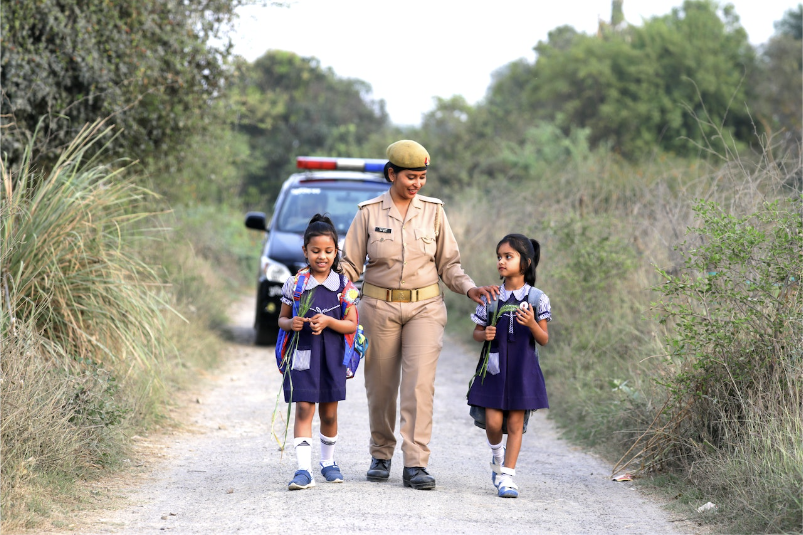
In an increasingly complex and fast-paced world, allowing our kids to explore their surroundings while ensuring their safety can be a genuine challenge. Thankfully, GPS trackers for kids have emerged as powerful tools that promote both independence and safety. This blog post casts light on trackers’ features, technical advantages, and precision of a GPS tracker for kids, highlighting how they enable parents to embrace their children’s independence while providing peace of mind.
What is GPS technology
Global Positioning System, is a satellite-based navigation system that enables precise location tracking anywhere on the planet. By receiving signals from multiple satellites, GPS trackers can accurately determine the device’s position and send that information to the user’s smartphone or computer.
The integration of GPS technology in trackers provides parents with a reliable and efficient means of locating kids. Whether it’s ensuring they arrive safely at school, monitoring their activities during outings, or finding them in case of emergencies, GPS trackers offer peace of mind by allowing family members to stay informed about their child’s location at all times.
They walk – you can locate them in real time

They walk – you can locate them in real time
GPS trackers are made for real-time location tracking, providing parents with up-to-date information about their child’s whereabouts. This feature allows users to foster a sense of security because they can quickly identify their child’s location in case of emergencies or unexpected situations.
You can use geo-fencing and safe zones
One of the notable features of GPS trackers is geo-fencing, which allows parents to create virtual boundaries or safe zones for their children. By defining specific areas such as home, school, or a neighborhood park, parents receive instant notifications when their child enters or exits these designated zones. Geo-fencing empowers children with the freedom to explore while giving parents the ability to ensure their safety within predefined boundaries.
Enjoy enhanced communication
Many GPS trackers for kids include two-way communication capabilities. This enables children to communicate with their parents or guardians in case of emergencies or simply to check in. Such communication features promote independence by allowing children to express themselves and build their confidence while knowing that help is just a call away.
Trackers are durable and water-resistant
Children lead active lives, filled with adventures and exploration. GPS trackers designed for kids are built to withstand the rigors of their activities. They are typically durable, shock-resistant, and water-resistant, ensuring the device can endure rough handling and survive accidental spills or splashes.
You can stay in touch via mobile apps
The accompanying mobile apps provided with GPS trackers are designed with simplicity and ease of use in mind. These apps offer intuitive interfaces that allow parents to effortlessly monitor their child’s location, receive notifications, and customize settings according to their preferences. User-friendly apps contribute to a seamless experience and enable parents to efficiently manage their child’s safety.
Trackers ensure precision and reliability
GPS technology has come a long way in terms of precision and reliability. Modern GPS trackers provide accurate location information with a high degree of precision, often within a few meters. This reliability ensures that parents can trust the data provided by the GPS tracker, allowing them to make informed decisions regarding their child’s safety.
Freedom-control balance
While ensuring safety is paramount, it is equally essential to encourage our children’s independence. GPS trackers strike a balance between supervision and granting children the freedom to explore and grow. By utilizing these devices, parents instill a sense of responsibility and self-reliance in their children, empowering them to take safe risks and develop essential life skills.
Features in GPS trackers to make your kids independent
When selecting a GPS tracker for your child, certain features contribute to fostering their independence while maintaining their safety:
- Two-Way Communication. GPS trackers equipped with two-way communication features allow children to stay connected with their parents or guardians. This promotes independence by enabling children to express themselves, seek assistance when needed, and build their confidence knowing they can reach out whenever required.
- Geo-Fencing and Safe Zones. Geo-fencing features are instrumental in promoting independence with boundaries. Parents can create safe zones, such as their home or school, allowing their children the freedom to explore within these predefined areas. This feature gives children the confidence to navigate their surroundings while reassuring parents that they remain in secure zones.
- Mobile App Accessibility. User-friendly mobile apps accompanying GPS trackers are essential for children’s independence. Parents should look for apps that allow children to view their location and engage with the tracker, fostering a sense of responsibility and autonomy. Giving children access to the app, with appropriate parental controls, promotes open communication and builds trust.
How not to abuse GPS trackers usage?
Building a trustful relationship with your children is vital for their growth and independence, so when you use trackers, you shouldn’t forget about essential rules of communication. Here are some recommendations to strengthen the parent-child bond:
- Foster open communication where children feel comfortable discussing their experiences and concerns. Encourage them to share their whereabouts and reassure them that you are there to support and guide them.
- Respect your child’s privacy while using any sort of trackers and establish clear boundaries. Communicate the purpose of tracking as a safety measure, rather than constant surveillance. Discuss the importance of trust and emphasize that the tracker is there to ensure kids’ well-being.
- Involve children in decision-making, particularly – selecting and setting up the GPS tracker. Explain its purpose and benefits, allowing them to voice their opinions and concerns. This involvement instills a sense of ownership and empowers kids to take responsibility for their own safety.
- Reach the golden balance between independence and supervision. Encourage your children to explore within defined boundaries, promoting their freedom of movement while knowing their location is easily accessible.
- Clearly communicate your expectations regarding safety and responsible behavior. Discuss the importance of adhering to the agreed-upon boundaries and guidelines. Regularly review and adjust these expectations as your child grows and demonstrates increased maturity.
Conclusion
GPS trackers for kids are powerful tools that promote both independence and safety. With real-time location tracking, geo-fencing, enhanced communication features, durability, and precision, these devices enable parents to embrace their children’s autonomy while ensuring their well-being. Embrace the technology and embark on a journey of empowerment and safety for your child’s bright future.
